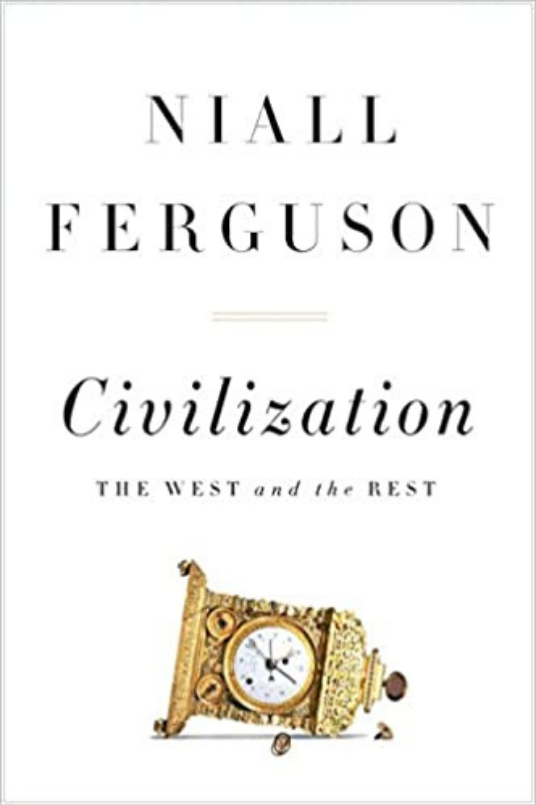It will help you understand why the world is how it is nowadays.
Also, It will give you tools and insights to better understand why is it that the West is leading the Rest.
If you, like me, have recently decided to learn more about history, this is a great place to start.
Flow: 5/5
Actionability: 4/5
Mindset: 5/5
Some of My Highlights:
“Just why, beginning around 1500, did a few small polities on the western end of the Eurasian landmass come to dominate the rest of the world, including the more populous and in many ways more sophisticated societies of Eastern Eurasia?”
“In The History Boys, the playwright Alan Bennett posed a ‘trilemma: should history be taught as a mode of contrarian argumentation, a communion with past Truth and Beauty, or just ‘one fucking thing after another?”
“First, the current world population makes up approximately 7 percent of all the human beings who have ever lived.”
“In 1500 the future imperial powers of Europe accounted for about 5 percent of the world’s land surface and at most 16 percent of its population. By 1913, eleven Western empires controlled nearly three-fifths of all territory and population and close to three-quarters (a staggering 74 percent) of global economic output.”
“…the rise of Western civilization is the single most important historical phenomenon of the second half of the second millennium after Christ.”
“…the West dominated the rest because of imperialism.”
“The key, it becomes ever more apparent, lies with institutions.”
“…Simón Bolívar’s failure to create a United States of Latin America was not the gringo’s fault.”
“The ‘West’, then, is much more than just a geographical expression. It is a set of norms, behaviors and institutions with borders that are blurred in the extreme.”
“Why did China founder while Europe forged ahead? Smith’s main answer was that the Chinese had failed to ‘encourage foreign commerce’, and had therefore missed out on the benefits of comparative advantage and the international division of labor.”
“In Europe, on the contrary, strong nations are opposed to the strong; and those who join each other have nearly the same courage.”
“…Max Webber defined Confucian rationalism as meaning ‘rational adjustment to the world’, as opposed to the Western concept of ‘rational mastery of the world’.”
“Maritime exploration, in short, was fifteenth-century Europe’s space race. Or, rather, its spice race.”
“You might say it was a case of divide and rule – except that, paradoxically, it was by being divided themselves that Europeans were able to rule the world.”
“As Confucius himself said: ‘A common man marvels at uncommon things. A wise man marvels at the commonplace.'”
“If one thing came to differentiate the West from the East it was the widely differing degrees to which such new and profound knowledge was systematically pursued and applied.”
“On closer inspection, that superiority was itself based on improvements in the application of science to warfare and of rationality to government.”
“By the eighteenth century, its edge over the Orient was a matter as much of brainpower as of firepower.”
“Printing, too, was resisted in the Muslim world.”
“This failure to reconcile Islam with scientific progress was to prove disastrous.”
“In January 1580, barely five years after its completion, the Sultan ordered the demolition of Takiyüddin’s observatory. There would not be another observatory in Istanbul until 1868.”
“It is not accidental that three of the world’s most important technological innovations – James Watt’s improved steam engine (1764), John Harrison’s longitude-finding chronometer (1761), and Richard Arkwright’s water frame (1769) – were invented in the same country, in the same decade.”
